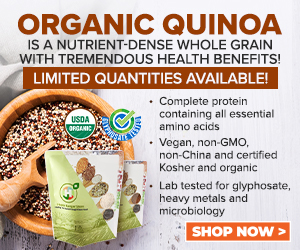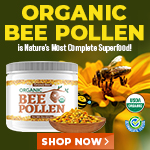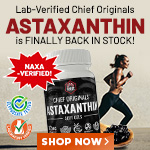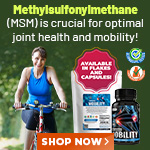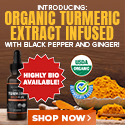
Spirulina research shows treatment of breast cancer tumors, HIV virus, and other viruses
 Monday, October 25, 2004 Monday, October 25, 2004by Mike Adams, the Health Ranger Editor of NaturalNews.com (See all articles...) Tags: Cyanotech, spirulina, microalgae |
- Chemtrails unveiled: How the CIA and Big Business are manipulating the weather for profit
- Israeli lobbyists boast of controlling US national security policy in leaked AIPAC audio
- Tulsi Gabbard leads charge against the Biden regime’s global censorship of the 'Disinformation Dozen'
- Mysterious underwater pyramid off Japan could rewrite ancient history
- Fauci is back in the limelight, and he’s busy promoting a future COVID or FLU pandemic
- Geoengineers forced into secrecy as public backlash grows: How climate elites are manipulating populations to accept geoengineering experiments
- Analysis: The coming economic collapse, a mass uprising and Trump's three secret weapons to halt the growing revolt
- Pfizer's RSV vaccine linked to preterm births as drug giant CONCEALED RISKS from pregnant women in unethical clinical trials
- Shedding light on the dark side of MMR vaccines: How vaccinated individuals SPREAD MEASLES & put the vulnerable at risk
- How to live without electricity: A practical guide for survival and preparedness
- Aerosolized bioweapons? Strange “diploid biomasses” falling out of the sky in Florida captured under the microscope
- Common household chemicals linked to America's depression epidemic
- The HEART-HEALING power of SEVEN Mediterranean plants
- Kiss Your Genetic Privacy Good-Bye! 23andMe Gets Green Light to Sell Your Intimate Genetic Details to Anyone They Want
- Widespread social and economic unrest: Steve Quayle issues urgent financial warning of imminent asset collapse in new interview with Mike Adams
- U.S. lawmakers investigate Meta over alleged China collaboration
- Tulsi Gabbard takes aim at censorship: Justice for the ‘Disinformation Dozen’
- Dane Wigington exposes climate engineering as ‘All-Out Weather and Biological Warfare’
- Aerosolized bioweapons? Strange “diploid biomasses” falling out of the sky in Florida captured under the microscope
- Widespread social and economic unrest: Steve Quayle issues urgent financial warning of imminent asset collapse in new interview with Mike Adams
- CLOT SHOT PLANDEMIC UNFOLDING: Fibrous, rubbery clots caused by covid injections have prion-like seeding activity
- Analysis: The coming economic collapse, a mass uprising and Trump's three secret weapons to halt the growing revolt
- Kiss Your Genetic Privacy Good-Bye! 23andMe Gets Green Light to Sell Your Intimate Genetic Details to Anyone They Want
- Tulsi Gabbard leads charge against the Biden regime’s global censorship of the 'Disinformation Dozen'
- Mike Adams releases country western hit single: Goin’ Back in Time is Comin’ Home
- DEATH by VACCINE or face PRISON time: Canadian Freedom Convoy leaders CONVICTED for protesting forced vaccination during the Covid Plandemic
- Fauci is back in the limelight, and he’s busy promoting a future COVID or FLU pandemic
- How Israeli military-connected corporations are secretly controlling your online privacy
- European Court of Justice: Healthcare professionals who promoted or administered COVID-19 vaccines are CRIMINALLY LIABLE for any harm caused
- Defunding DEADLY mRNA jabs: Government funding for mRNA technology being scrutinized and sidelined until proven "safe and effective" for real
- Tulsi Gabbard takes aim at censorship: Justice for the ‘Disinformation Dozen’
- Federal employees whine over DOGE's new directive requiring them to do a 5-point summary of weekly accomplishments
- U.S. approves new Russian ambassador as diplomatic thaw continues
- I Want My Bailout Money – new song and music video released by Mike Adams
- Trump administration poised to overhaul crypto regulations with new SEC leadership
- I Want My Bailout Money – new song released by Mike Adams
- Newly released JFK files reveal Pentagon's role in creating Lyme disease and covid in the same lab
- Mike Adams releases country western hit single: Goin’ Back in Time is Comin’ Home
- Analysis: The coming economic collapse, a mass uprising and Trump's three secret weapons to halt the growing revolt
- MEDICAL BOMBSHELL: FDA admits Covid mRNA 'Vaccines' CAUSE CANCER
- Dr. Mike Yeadon releases 15-minute testimony - WATCH - about genocidal intent of COVID “vaccines”
- Trump reverses course on Gaza plan, says “nobody is expelling Palestinians”
- 5 Simple steps to boost your brainpower: How to strengthen executive function in a distracted world
- The Health Ranger releases “Vaccine Zombie” song and music video, using AI-animated zombies for the music video
- California's social media censorship law struck down: A victory for free speech or a threat to online safety?
- Rep. Nancy Mace introduces bill to ban biological males from female facilities on federal property
- EPA advisor admits the agency is funneling billions to climate groups ahead of Trump’s return to White House
- Survival 101: Effective EMF blocking techniques
- Aerosolized bioweapons? Strange “diploid biomasses” falling out of the sky in Florida captured under the microscope
- OpenAI whistleblower who dissented against how the company trained ChatGPT found dead
- Trump Administration cuts 2,000 USAID jobs, places most employees on leave in sweeping reform effort
- A lack of integrity in Academia: Harvard professor found GUILTY of fraudulent research to promote CRT theory
- Sugarcane extract superior to cholesterol-lowering drugs?
- RFK Jr.'s SSRI antidepressant investigation sparks liberal meltdown, exposes Big Pharma's dangerous game
- Red Cross issues warning to stop blood plasma donations from vaccinated people
- Scientists confirm: GENIUS brain function can be spontaneously unleashed in humans without any apparent cause
- EPA advisor admits the agency is funneling billions to climate groups ahead of Trump’s return to White House
- HYSSOP: What research reveals about the health benefits of this ancient holy herb
- Two containers with completed ballots fall out of truck in Florida
- Fully vaccinated about to see “tsunami” of illness and death, warns virologist
- Global leaders unite to clamp down on “misinformation” with UN-backed Cascais Declaration
- Newly released JFK files reveal Pentagon's role in creating Lyme disease and covid in the same lab
- BREAKING: 2025 NDAA authorizes mandatory military draft of WOMEN across America… as Pentagon pursues global NUCLEAR war with both Russia and China at the same time
- Michael Yon warns of a ZIONIST TAKEOVER in Trump’s second administration
- Ozempic and Wegovy weight loss drugs are injectable LIZARD VENOM PEPTIDES that may unleash a devastating wave of organ failure… side effects align with symptoms of SNAKE BITES
- The Health Ranger releases “Vaccine Zombie” song and music video, using AI-animated zombies for the music video
- BOMBSHELL: DNA testing kits are a SCAM to develop ethnic-specific bioweapons
- Israeli soldiers accused of even more torture and abuse in the West Bank
- These 13 countries just signed an agreement to engineer a global FAMINE by destroying food supply
- Mike Adams releases country western hit single: Goin’ Back in Time is Comin’ Home
- NASA admits that climate change occurs because of changes in Earth’s solar orbit, and NOT because of SUVs and fossil fuels
- RFK Jr. clears key hurdle: Sen. Susan Collins backs controversial HHS nominee, signaling a new era for health policy
Mike: Can you talk more about that? Do you have some clinical trials on that yet, or what's the science behind that so far?
Gerry: We don't have any specific clinical trials. There's been some research out of Japan showing that a sulfonated polysaccharide which they've named calcium spirolan inhibits many viruses from invading cells, and this includes herpes and actually the HIV virus. And there's also been some work out of the University of Mississippi where they have extracted a compound, again a polysaccharide from spirulina, which greatly stimulates the immune system.
Mike: Interesting. It also reminds me of a study I've mentioned in the past -- I think this was out of Japan as well, where they took the cyan pigmentation from spirulina and injected it into breast cancer tumors and were amazed that those tumors vanished. They were destroyed by this pigment phytochemical.
Gerry: Yes, and there's also been a study in India with a group of people that chewed tobacco quite a bit and eventually developed mouth cancer, and they gave the group spirulina, and I think the remission rate was something like 80% of those folks with pre-cancerous lesions in their mouth if they took spirulina.
Mike: Very interesting.
Gerry: Yes. The other interesting compound in spirulina that really isn't found anywhere else in the plant kingdom or animal foods is something called phycocyanin. This is a blue pigment. That's why spirulina is actually called blue-green algae, because of the phycocyanin blue pigment. And it's a phycobiliprotein and research has shown that it really provides a great deal of protection to both the liver and the kidneys. It's actually an antioxidant pigment or protein pigment.
Mike: I find it so fascinating -- there are so many health-enhancing attributes of these phytonutrients, and yet they are largely unstudied. There's a whole universe waiting to be explored there. And I'm curious, are there any institutions that are really doing hard research on the health benefits of consuming spirulina?
Gerry: Well, certainly there's a lot of work being done in Japan. The Japanese have been doing work with another microalgae, chlorella, and I think they are certainly now discovering some of the health benefits and the superior health benefits of spirulina. And the University of Mississippi has a very good program. It's the National Center for Natural Products Research, and it's in the School of Pharmacy and they actually are looking at some of the natural health benefits of spirulina.
Mike: It does seem like the good research on this always comes out of the universities.
Gerry: Yes.
Mike: Obviously, the pharmaceutical companies don't have much interest in looking at the health benefits of spirulina, since that would typically compete with many of their drugs.
Gerry: Well, it certainly would, and they wouldn't have a great deal of patent protection to move forward.
Mike: Indeed. Well, that's an interesting point -- what about your own cultures? Is there any intellectual property involved here, or can competitors grow the same thing you're growing?
Gerry: Well, they certainly can grow spirulina platensis, but our drying process, the Ocean Chill drying process, is a patented process, so they would not be allowed to use that, and also the strain that we have really developed here in Kona after 20-some years of culturing spirulina is unique. We haven't really determined scientifically if it's a new strain, but we do know that it does contain higher levels of carotenoids than original, it's a little bit larger strain, and so it would take quite some time for somebody to reproduce the type of strain we have developed now here in Kona.
Mike: Now here's an interesting question -- is spirulina something that an individual could somehow grow or harvest in their backyard, and if not, why not?
Gerry: Well, it is something somebody could grow in their backyard, but it would be, first of all, very difficult to get the type of product quality that we can get out here in a large commercial production system. The reason for that is that one of the major ingredients to grow spirulina is baking soda, or sodium bicarbonate. It requires a lot of baking soda, as well as some sources of nitrogen, phosphate and trace minerals. It has to be very carefully balanced and maintained almost on a daily basis. And when it's harvested, it's harvested rather easily through a fine mesh screen, washed extensively, but when you come to the drying system, it's very hard for an individual to have an efficient low-temperature drying system that does not destroy the phytonutrients. Putting spirulina in an oven for instance, even at a low temperature, the amount of time that it takes and the exposure to oxygen during that time really would destroy a lot of the phytonutrients.
Mike: So a person could end up with a powder that looks like spirulina, but nutritionally it's not the same thing at all.
Gerry: That's correct. Now it certainly would have the protein content, which is over 50%, but you wouldn't get some of the subtle phytonutrients which are so very important, like beta carotene, zeaxanthin and alpha carotene.
Mike: Indeed, and I want to emphasize too, to readers, that those nutrients are what I think are the essential benefits of consuming spirulina.
Gerry: I certainly agree.
 This article is part of an exclusive interview with Dr. Gerry Cysewski, CEO and founder of Cyanotech Corporation http://www.cyanotech.com, located in Kona, Hawaii. Cyanotech's spirulina and astaxanthin products are available in retail stores (look for products made with "Hawaiian spirulina") or through Nutrex-Hawaii at http://www.nutrex-hawaii.com.
This article is part of an exclusive interview with Dr. Gerry Cysewski, CEO and founder of Cyanotech Corporation http://www.cyanotech.com, located in Kona, Hawaii. Cyanotech's spirulina and astaxanthin products are available in retail stores (look for products made with "Hawaiian spirulina") or through Nutrex-Hawaii at http://www.nutrex-hawaii.com.
The aerial photo on the left shows Cyanotech's farms. The dark green culture ponds contain spirulina, while the reddish ponds contain astaxanthin in various stages of growth. The dark land mass on the right is a lava field.
Editors note: Spirulina is one of the superfoods I consume on a daily basis. Due to my passion about superfoods nutrition, I traveled to Kona, Hawaii to conduct a series of interviews with Cyanotech personnel. To find all available articles on Cyanotech, just type "Cyanotech" in the search box below. New articles are being added regularly.
Cyanotech at FETCH.news
Get independent news alerts on natural cures, food lab tests, cannabis medicine, science, robotics, drones, privacy and more.
 About the author:Mike Adams (aka the "Health Ranger") is a best selling author (#1 best selling science book on Amazon.com) and a globally recognized scientific researcher in clean foods. He serves as the founding editor of NaturalNews.com and the lab science director of an internationally accredited (ISO 17025) analytical laboratory known as CWC Labs. There, he was awarded a Certificate of Excellence for achieving extremely high accuracy in the analysis of toxic elements in unknown water samples using ICP-MS instrumentation. Adams is also highly proficient in running liquid chromatography, ion chromatography and mass spectrometry time-of-flight analytical instrumentation.
About the author:Mike Adams (aka the "Health Ranger") is a best selling author (#1 best selling science book on Amazon.com) and a globally recognized scientific researcher in clean foods. He serves as the founding editor of NaturalNews.com and the lab science director of an internationally accredited (ISO 17025) analytical laboratory known as CWC Labs. There, he was awarded a Certificate of Excellence for achieving extremely high accuracy in the analysis of toxic elements in unknown water samples using ICP-MS instrumentation. Adams is also highly proficient in running liquid chromatography, ion chromatography and mass spectrometry time-of-flight analytical instrumentation.
Adams is a person of color whose ancestors include Africans and Native American Indians. He's also of Native American heritage, which he credits as inspiring his "Health Ranger" passion for protecting life and nature against the destruction caused by chemicals, heavy metals and other forms of pollution.
Adams is the founder and publisher of the open source science journal Natural Science Journal, the author of numerous peer-reviewed science papers published by the journal, and the author of the world's first book that published ICP-MS heavy metals analysis results for foods, dietary supplements, pet food, spices and fast food. The book is entitled Food Forensics and is published by BenBella Books.
In his laboratory research, Adams has made numerous food safety breakthroughs such as revealing rice protein products imported from Asia to be contaminated with toxic heavy metals like lead, cadmium and tungsten. Adams was the first food science researcher to document high levels of tungsten in superfoods. He also discovered over 11 ppm lead in imported mangosteen powder, and led an industry-wide voluntary agreement to limit heavy metals in rice protein products.
In addition to his lab work, Adams is also the (non-paid) executive director of the non-profit Consumer Wellness Center (CWC), an organization that redirects 100% of its donations receipts to grant programs that teach children and women how to grow their own food or vastly improve their nutrition. Through the non-profit CWC, Adams also launched Nutrition Rescue, a program that donates essential vitamins to people in need. Click here to see some of the CWC success stories.
With a background in science and software technology, Adams is the original founder of the email newsletter technology company known as Arial Software. Using his technical experience combined with his love for natural health, Adams developed and deployed the content management system currently driving NaturalNews.com. He also engineered the high-level statistical algorithms that power SCIENCE.naturalnews.com, a massive research resource featuring over 10 million scientific studies.
Adams is well known for his incredibly popular consumer activism video blowing the lid on fake blueberries used throughout the food supply. He has also exposed "strange fibers" found in Chicken McNuggets, fake academic credentials of so-called health "gurus," dangerous "detox" products imported as battery acid and sold for oral consumption, fake acai berry scams, the California raw milk raids, the vaccine research fraud revealed by industry whistleblowers and many other topics.
Adams has also helped defend the rights of home gardeners and protect the medical freedom rights of parents. Adams is widely recognized to have made a remarkable global impact on issues like GMOs, vaccines, nutrition therapies, human consciousness.
In addition to his activism, Adams is an accomplished musician who has released over a dozen popular songs covering a variety of activism topics.
Click here to read a more detailed bio on Mike Adams, the Health Ranger, at HealthRanger.com.
Take Action: Support Natural News by linking to this article from your website
Permalink to this article:
Embed article link: (copy HTML code below):
Reprinting this article:
Non-commercial use OK, cite NaturalNews.com with clickable link.
Follow Natural News on Facebook, Twitter, Google Plus, and Pinterest
Science News & Studies
Medicine News and Information
Food News & Studies
Health News & Studies
Herbs News & Information
Pollution News & Studies
Cancer News & Studies
Climate News & Studies
Survival News & Information
Gear News & Information
News covering technology, stocks, hackers, and more



"Big Tech and mainstream media are constantly trying to silence the independent voices that dare to bring you the truth about toxic food ingredients, dangerous medications and the failed, fraudulent science of the profit-driven medical establishment.
Email is one of the best ways to make sure you stay informed, without the censorship of the tech giants (Google, Apple, Facebook, Twitter, YouTube, etc.). Stay informed and you'll even likely learn information that may help save your own life."
–The Health Ranger, Mike Adams











